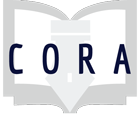This lesson introduces undergraduates to personal digital archiving (PDA) as an instructional bridge to research data management.
PDA is the study of how people organize, maintain, use and share personal digital information in their daily lives. PDA skills closely parallel research data management skills, with the added benefit of being directly relevant to undergraduate students, most of whom manage complex personal digital content on a daily basis.
